- Home
- Michael White
The Medici secret Page 2
The Medici secret Read online
Page 2
'I don't see any harm in admitting academics have disagreements,' Edie replied, plucking another pair of tweezers from a tray.
'Well, I do. I don't trust those people. They're always on the lookout for anything to cut our funding.'
'I think they were more interested in getting out of here as quickly as possible.'
'Quite possibly, but I consider Pinoro to be a viper.'
'Is that why you lumbered me with them?' Edie retorted.
Mackenzie glared at her. Edie looked away and quickly changed the subject. 'Exquisite texture to this silk jacket.' 'Indeed it is. Take a look at this,' Mackenzie offered Cartwright his loupe. The corpse was dressed in a cream silk shirt and a velvet jacket which would once have been the most vivid and beautiful purple. The buttons of the jacket were solid gold. 'Adds weight to my theory, does it not?' Mackenzie muttered.
Edie shrugged. 'You would expect Cosimo to have been buried in the finest, but that could equally well apply to any prominent member of the family.'
'Perhaps. Found anything from the DNA samples, Jack?'
'We're still working on that,' Cartwright handed the eyepiece back to Mackenzie. 'It's proving to be more difficult than expected.'
Mackenzie sighed, carefully pulling back the crumbling jacket and exposing the crisp brown skin of the mummy beneath. It looked like a body made from papier mache. 'Well, that's why we've dragged the poor fellow out,' he said.
Cosimo de' Medici, or Cosimo the Elder as he was sometimes known, had been one of the most important members of the Medicis, a man who had done more than anyone to elevate the family into its illustrious place in history. Born in Florence in 1389, he had been de facto ruler of the city for a generation. He ignited the Italian Renaissance and made the equivalent of billions for the family. Upon his death in 1464, he was honoured with the official title Pater Patriae: 'Father of His Country'.
Mackenzie ran a scalpel along the body's desiccated torso. The blade slid through the skin effortlessly and he drew it down then across the body to produce a Y-cut. The embalmers had worked with remarkable skill. The ancient corpse was very different to that of Ippolito, whose body, although buried more recently, had been reduced to little more than a crumbling skeleton. But under the crisp skin lay a dry cavity. The organs had shrivelled to a fraction of their original size and were as dry as the man's skin.
Mackenzie removed pieces of each organ and placed them in individually labelled test tubes which he then stoppered up. Edie placed these carefully in a rack on one side of the table. Probing deeper, he scraped away a tiny sample of the breastbone and a rib, placing the flakes into their own sample bottles.
Leaning forward, Mackenzie examined the void inside the body's chest. 'Odd,' he said after a moment. 'There appears to be an alien object resting against the spine. I can't see it very clearly. Take a look Edie.'
She swung a mounted magnifying glass over the cadaver and peered down at the area around the shrivelled heart. 'I can see something, a black surface, it's embedded in the anterior epidermal layers I think. It certainly doesn't look like a natural artefact.'
'Help me turn the body over on to its side,' Mackenzie instructed them.
Edie and Jack Cartwright gently turned the corpse, raising one side two feet above the table. It weighed almost nothing.
'Just a little more,' Mackenzie said, squeezing his head and shoulders under the ancient mummy. With surgical precision, he ran his scalpel along the line of the spine making sure he inserted the blade in just a fraction of an inch so as not to damage the vertebrae. Straightening up, he raised a pair of metal tweezers up to the light. They held a thin and featureless black rectangle. Carlin Mackenzie was alone in the burial chamber of the Medici Chapel. The digital clock on his desk showed that it was approaching 9 p.m., but he felt neither tired nor in any mood to shut down the computers and walk the short distance to his apartment on Via Cavour.
It had been an extraordinary day, perhaps the most extraordinary of his life, certainly the most remarkable of his forty-year career as a palaeopathologist The nature of the artefact they had discovered inside the body of Cosimo de' Medici remained a total mystery; but the simple fact of its existence presented a conundrum. Save for the natural disturbance of the flood of 1966, these bodies had not been touched since they were buried. Yet here was this strange rectangular object concealed in the dried epidermal tissue of a man who had died over 500 years earlier.
The object was resting in a Petri dish next to Mackenzie's computer. He, Edie and Jack Cartwright had studied it as thoroughly as they dared without taking unnecessary risks. It was entirely black, a piece of granite-like stone measuring exactly 3.9 by 1.9 centimetres, and was just a few millimetres thick. A single X-ray had shown it to be solid, apparently featureless and of uniform density. They had refrained from any form of chemical test until they could be sure these would not harm the stone. Using a powerful microscope, its crystalline structure was revealed to be a blend of feldspar, quartz and potassium, an exceptionally pure granite called Amanorthosite.
Mackenzie began to write some comments in a notebook. He listed what they already knew: the object's chemical structure, mass, density, dimensions. Then, putting down his pen, he picked up the stone rectangle and held it up to the light between latexed finger and thumb. With a jolt, he realised something about it had changed. Across what had been a featureless surface, faint green lines had begun to appear. They were changing and merging even as he stared. He reached for his loupe and looked closer. This was truly remarkable. A faint green outline was forming close to one end of the rectangle. Below this, he could just begin to see some letters, and two-thirds of the way down, a set of lines appeared.
'This is amazing,' he heard himself say. For a few seconds he wasn't quite sure what to do. Then, he grabbed the phone and quickly dialled a number. An answer machine came on. He dialled another number from memory. A second machine clicked on, and without hesitating, he began to describe what he could see on the face of the stone tablet.
Two minutes later, he was about to make some final remarks when he heard a bleep and knew he had used up the memory on the answer system. He replaced the phone and stared at the wall. What he had seen thrilled but also scared him. He had never been a superstitious man. He had been trained as a scientist, but he couldn't deny his deepest fears. This was merely the latest in a string of weird events and coincidences that he had spoken of to no one. By leaving this message, had he done enough? Or had he done too much? Had he placed others in terrible danger?
He heard a faint noise from the chamber beyond. He looked towards the plastic screen dividing the office from the burial chamber. Silence.
He placed the tablet back in the Petri dish and removed the loupe. It was at that precise moment he felt a sudden, intense pain in his neck. He sensed rather than saw someone leaning in towards him. His hands flew to his neck and felt the cold steel of a garrotte. His assailant twisted on the wire with incredible force.
The scientist's eyes bulged. Gasping for breath, he tried to pull away and at the same time to force his fingers beneath the garrotte. But it was utterly futile. A terrible pain roared through his head and he began to lose focus. His attacker was pulling him further and further back, slicing into his neck. For a fleeting moment, Mackenzie believed he could twist free, but the man behind him was far too strong. Mackenzie's sphincter opened and he voided himself; a foul smell rose from his seat. There was a tiny almost imperceptible crack as Mackenzie's trachea was sliced open and darkness closed about him.
Chapter 3
Venice, present day Jeff Martin eased the cashmere of his sweater away from his neck and ran a hand over the light stubble on his chin. It had been too late to shave before leaving his apartment earlier that evening and, when he had caught a glimpse of himself in the hall mirror on the way out, he had thought he looked tired, his skin a bit blotchy, his longish, light brown hair a little lank and lifeless. Jeff's intense blue eyes still possessed something of their old s
parkle, he had reassured himself, but it could not be denied, he had definitely looked better.
Gazing now around Harry's Bar, he reflected, not for the first time, on what had gone through the mind of Ernest Hemingway as he had taken in the same scene more than half a century earlier. 'You find everything on Earth at Harry's… except perhaps happiness.' The place never changed; neither, he thought, had those sentiments. The half-timbered walls were still the same shade of cream they had been when it was first opened in 1931. The waiters, handsome and elegant, wore the same uniform of black trousers, white bow ties and crisply starched white jackets. The menu was very similar, the layout of the bar unaltered, and the arrangement of tables and chairs in this modest room was identical to the design dreamed up by the founder, Giuseppe Cipriani, who had called it Harry's after a friend, Harry Pickering, put up the two hundred pounds needed to open the place. And Harry's still exuded the same aura of genteel melancholia it had possessed so long ago. 'Another?'
The question snapped Jeff out of his reverie. He looked at his friend, Visconte Roberto Armatovani and nodded. 'Why not?' They hadn't seen each other for some time. Roberto, a world-renowned musicologist, had been on a lecture tour of America. They had met earlier in the evening and enjoyed a hideously expensive dinner upstairs in the restaurant. Now they both felt a little overfull, but relaxed. The waiter was at the table and two more Bellinis were ordered almost immediately.
'So,' Roberto said. 'How's Rose taking to Venice?'
'Oh, very well. She's at a difficult age but she's become quite attached to dear old Maria. Which is a relief
Rose, the only child from his ill-fated marriage, was the best thing he had produced in his life. Jeff wished he could see more of her, but her mother, Imogen, the woman he had been married to for thirteen years and divorced from for two, seemed determined to cause him pain and trouble. This was Rose's first visit to his adopted home and he had been able to see her only a handful of times since the dissolution of his marriage. Rose lived with her mother at Hogsdown, a vast, frigid stately home in Gloucestershire that Imogen had inherited from her deceased parents. With a momentary stab of sadness, Jeff realised his fourteen-year-old daughter was almost a young woman and soon he'd be losing his baby girl for ever.
He took a sip of his Bellini. Placing it back on the table, he glanced at Roberto who was as relaxed as always, a man completely at home in his environment. He was in his perennial uniform of black jeans, black polo neck and black leather jacket. His salt and pepper hair was cut short and his thin face, almost black eyes and high cheekbones made him look far younger than his forty-four years. The two men had met five years ago. Roberto was an authority on early music and in particular the compositions of Palestrina, the sixteenth-century maestro who had been a favourite of Pope Julius III. But there was much more to Roberto. He was also an extraordinary polymath; a superb violinist; the author of a clutch of popular books on a variety of arcane subjects, and, what had most drawn Jeff to him, he was an expert in the history of Venice. Jeff had been on two archaeological digs with him and helped with some of the research for his latest book, an account of the early settlement of Venice in the fourth century.
For Roberto, all his endeavours were elaborate hobbies because he was heir to one of the largest and most ancient fortunes in Italy. The Armatovani family could trace their ancestry back to the thirteenth century and it included half a dozen doges, cardinals and numerous warlords and local aristocrats. Roberto was the youngest of four brothers and the only one to remain in Venice after his parents died. He lived in one of the few palazzos that had not been converted into sumptuous apartments or hotels.
'You going to tell me about your trip then, Roberto? I've been waiting for you to mention it all evening.'
'Oh God. To be honest, I'm so glad to be home I don't much care to think about it.' His English was pure Oxbridge. 'But it was… well… how shall I put it? An experience. I don't think they knew quite what to make of me. They believe that it's obligatory for European professors to wear tweed jackets and smoke pipes.'
They both laughed. 'What about the tour though? You knocked 'em dead no doubt.'
'Of course,' Roberto replied. 'They have some excellent young musicians. But what of you, Jeff? You're looking a bit run-down.' 'Oh, rubbish.' 'Is there something wrong?'
'Roberto, I'm fine. In fact, I'm more contented than I've been for a long time.'
'Contented? What a thoroughly disgusting word. It means nothing, nothing at all. Precisely halfway between agony and ecstasy. Very bourgeois of you, my friend.' Jeff shrugged and drained his glass. 'All right, "fulfilled" then. I'm feeling fulfilled. Will that do?' 'Better.' 'You know more than anyone how depressed I was when I first moved here, but I'm over it now.' 'And you're not missing your old life?' 'Imogen?'
'No, not that bitch. Your illustrious career, being the young prodigy, historian extraordinaire.' 'No.' 'Why don't I believe you?'
'Well OK, yes. I sometimes find myself wondering what I would be doing now if things had turned out differently. I do try and keep up with things, even if I am persona non grata at Cambridge. And there's the stuff I do with you.'
Jeff beckoned the waiter and ordered another round. He was not being entirely honest with his friend. He loved Venice and had started to find real joy in working with Roberto. The problem was this research was only one of many concerns for Roberto who seemed to have a magical ability to juggle ten different projects at once. His recent trip to America had interrupted the flow of their studies, and Jeff knew that now Roberto was back he would immediately be throwing himself into at least half a dozen new plans. Besides which, he had to admit he was beginning to miss the satisfaction he had gained from being a respected member of the academic establishment, a fellow of Trinity College, Cambridge.
His ascension to world authority on the history of the early Middle Ages had been the stuff of legend, and at university he had been considered a genuine prodigy. Even before his finals he had written a ground-breaking paper on anti-Semitism in tenth century France published in the leading academic publication Journal of European History. He had then picked up a First from King's College, London before his twentieth birthday.
Moving to Cambridge, he had become a protege of Norman Honeywell-Scott, a famed academic with important connections. Jeff felt no shame in admitting that he had ridden on Honeywell-Scott's coattails, but within three years of joining the historian in Cambridge, they had fallen out, never to speak to each other again. Honeywell-Scott had moved to the Sorbonne where he had become an even more luminous star in the academic firmament. The same summer, Jeff had met and fallen in love with Imogen Parkhurst, only child of the Tory cabinet minister Sir Maxwell Parkhurst, whose ancestors had made their fortune financing the Napoleonic Wars.
Imogen's father had never liked him (her mother had died nine years earlier), and Jeff knew that for all his brilliance and academic success, Imogen was way out of his league. He had been born in a two-bedroom flat above a shop in Wickford, Essex, and his father had run an electrical business. Intellectual clout could only partially make up for poor breeding. Imogen had vigorously denied that her feelings for him stemmed from a belated act of rebellion against her parents, but it was nonsense of course. Then out of the blue, Jeff learned that Imogen was having an affair with a family friend, Caspian Knightley, a distant cousin of the late Diana Spencer.
From that moment onwards, his and Imogen's lives began to diverge. Two months after they had separated, Sir Maxwell died in a helicopter crash and Imogen inherited the family millions. Jeff threw himself into work and put huge faith in a TV series about Charlemagne he had been chosen to write and present. The pilot for the show bombed and almost overnight he lost his chance. The failure, the first of his career, hit him hard. He had turned to drink and then, influenced by his media friends, he had dabbled briefly with cocaine. Before long, his academic life started to unravel. A few months later, with his divorce finalised, he had taken the advice of the Master of T
rinity and left for an extended 'holiday' in Italy.
In some ways, he had been lucky. During his marriage to Imogen he had met some useful people who had become genuine friends. One of these was Mark Thornton who was one of the most skilful divorce lawyers in Britain. Thornton had never much liked the Parkhursts and had little time for Imogen. He had worked hard to secure Jeff an exceptionally good settlement which meant that the electrical contractor's son from Wickford was set up for life with a flat in Mayfair, a luxurious four-bedroom apartment on St Mark's Square in Venice and a few million in the bank. But Jeff knew he would have happily sacrificed the lot if he could have rewritten history and had more time to spend with Rose.
'Is there some babe at the bar?' Roberto asked suddenly. 'What?'
'You seem inordinately interested in something or someone over there.' 'Sorry, I was just thinking about Rose,' he lied.
'She's certainly blossomed. I could hardly believe it when I came to pick you up this evening. And she gets on with the irreducible Maria? That really is something.'
Jeff laughed. 'You never did warm to my housekeeper, did you Roberto?'
'No,' he replied. 'The woman can't stand the sight of me.'
'Nonsense.' Jeff looked at his watch. It had turned eleven. 'Look, sorry to be a bore, but I ought to be getting back. It' s my shout.'
Outside Harry's, it was freezing, and their breath hung mistily in the air. It was the eve of Carnivale; a crisp February evening, Jeff's favourite season in Venice. Turning up their collars, they walked along Calle Vallaresso, past the designer stores on each side, towards San Moise. They parted at the junction with a promise to meet up for Sunday lunch at the Gritti Palace. Jeff plunged his hands into his overcoat and headed east towards San Marco.
It was quiet. Most tourists were tucked up in bed and the African street traders were putting away their fake Louis Vuitton bags and five-dollar Rolexes. He crossed the square close to its western edge and walked quickly through a short passageway. His apartment was on the top floor on the north side of the square. Turning right, he walked along a narrow lane behind the building, the silence broken only by the gentle lapping of the canal to his left. Reaching the door to the hallway, he felt in his pocket for the key. Just as he inserted it into the lock, he heard a quiet cough. He span round. Standing in the shadows was a man in a long black coat and hat. For the briefest moment, the light from a window in Jeff's building caught something shiny in the man's hand making it glint in the darkness.

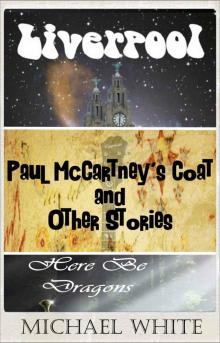 Paul McCartney's Coat
Paul McCartney's Coat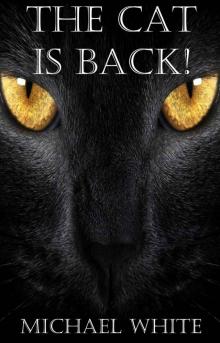 The Cat Is Back!
The Cat Is Back!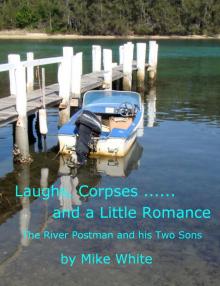 Laughs, Corpses... and a Little Romance
Laughs, Corpses... and a Little Romance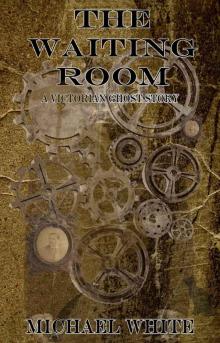 The Waiting Room
The Waiting Room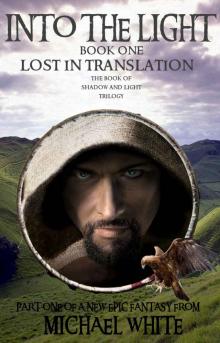 Into the Light- Lost in Translation
Into the Light- Lost in Translation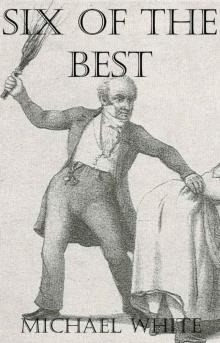 Six of the Best
Six of the Best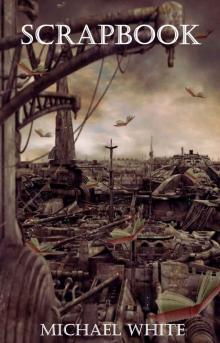 Scrapbook
Scrapbook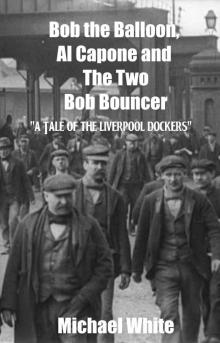 Bob the Balloon, Al Capone and the Two Bob Bouncer
Bob the Balloon, Al Capone and the Two Bob Bouncer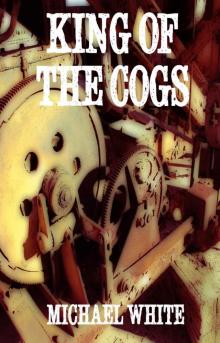 The King of the Cogs
The King of the Cogs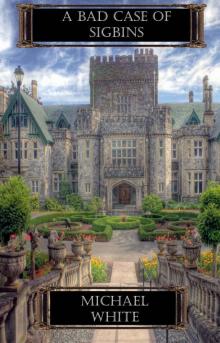 A Bad Case of Sigbins
A Bad Case of Sigbins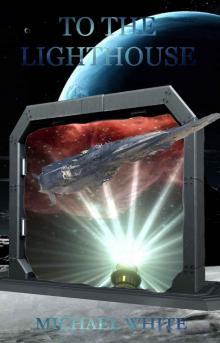 To the Lighthouse
To the Lighthouse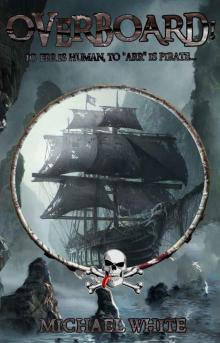 Overboard!
Overboard!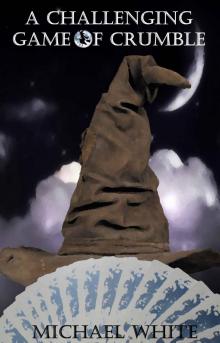 A Challenging Game of Crumble
A Challenging Game of Crumble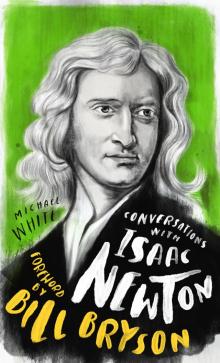 Conversations With Isaac Newton
Conversations With Isaac Newton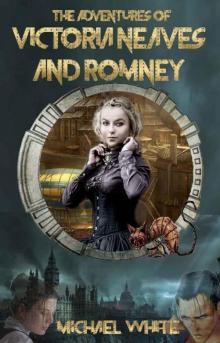 The Complete Adventures of Victoria Neaves & Romney
The Complete Adventures of Victoria Neaves & Romney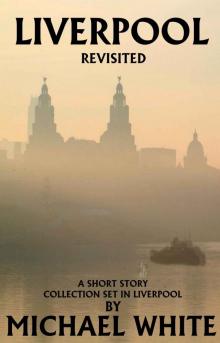 Liverpool Revisited
Liverpool Revisited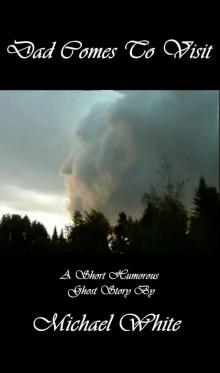 Dad Comes to Visit
Dad Comes to Visit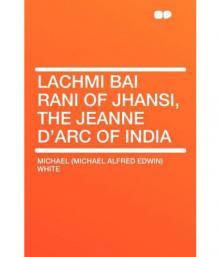 Lachmi Bai, Rani of Jhansi: The Jeanne D'Arc of India
Lachmi Bai, Rani of Jhansi: The Jeanne D'Arc of India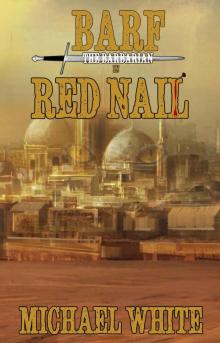 Barf the Barbarian in Red Nail (The Chronicles of Barf the Barbarian Book 2)
Barf the Barbarian in Red Nail (The Chronicles of Barf the Barbarian Book 2)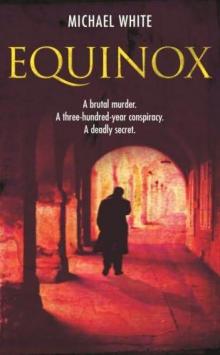 Equinox
Equinox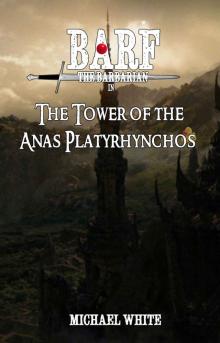 Barf the Barbarian in The Tower of the Anas Platyrhynchos (The Chronicles of Barf the Barbarian Book 1)
Barf the Barbarian in The Tower of the Anas Platyrhynchos (The Chronicles of Barf the Barbarian Book 1)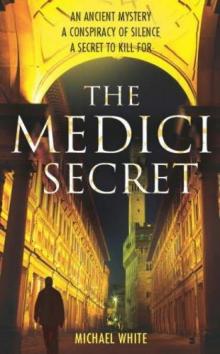 The Medici secret
The Medici secret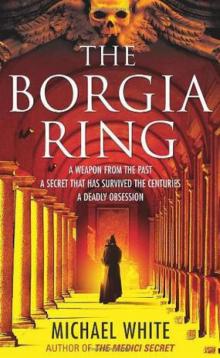 Jack Pendragon - 02 - Borgia Ring
Jack Pendragon - 02 - Borgia Ring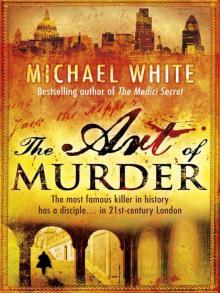 The Art of Murder jp-3
The Art of Murder jp-3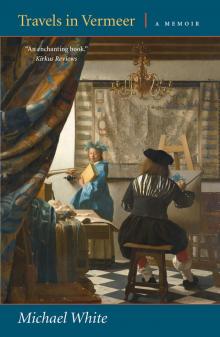 Travels in Vermeer
Travels in Vermeer